Edgars Liepiņš
Nacimiento : 1928-12-17, Zeltiņu Parish, Latvia
Muerte : 1995-09-13

Zolitude is inhabited mainly by immigrants. An extremely denational environment, a disorderly everyday life, depressing standard type architecture - these are the problems faced by the film's characters.

Revolution of 1905 in Latvia.

Žanis

Post-war Latvia. Francis' gang operates in a small town and the new KGB agent Juris Vilks has been asked to infiltrate his gang and gain his confidence.
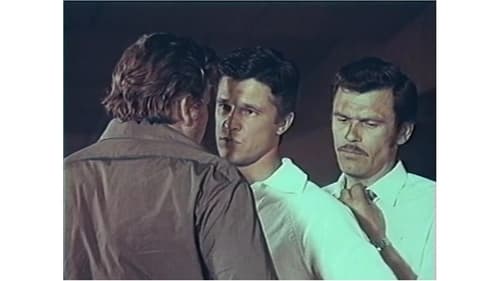
In one of the prestigious restaurants during banquet speech a large company's director Palmgren is killed in front of dozen guests . Case is lead by Criminal Investigation Officer Pierre Monson with his assistants. Suspect can be easily intercepted if only miserably lazy police officers Kvant and Kristiansson instead of catching criminal would not argue with father of little 3 years old boy who yelled: "Police, police, mashed potatoes" when they ate hot dogs. Help comes from capital in form of the famous Commissioner Martin Beck, who discovers that murdered industrialist was involved in illegal activities and had many enemies. The case is linked as well with government's "higher ends".
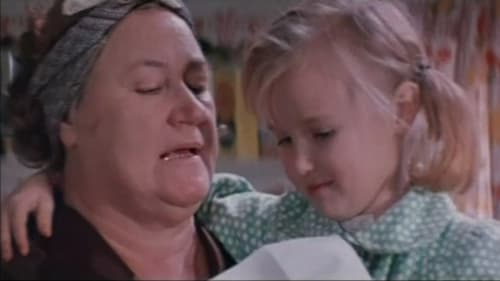
Vārgais

Latvia, late 19th century. Farm-hand boy Jancis lives on a homestead with his mother, grandfather and grandmother. His world does not reach beyond the horizon, and life progresses according to the seasonal cycle – from winter through spring, summer and autumn to the next St. George's Day when farmhands often had to move to the next farm.

The colourful musical comedy Maritime Climates could have been a triumph of smart political satire – if people in positions of power hadn’t got worried by the rushes they saw, which lead them to terminate the production. In 1992, Rolands Kalniņš made this edit of the remaining material – an elegy to lost hopes and illusions.

Based on a stage play of the same name by the one of the biggest names in the history of Latvian literature Rainis, "Put, vejini" tells a story of an unconventional love that blossoms between the handsome, wealthy and impetuous merchant Uldis and the timid, humble and clear-hearted orphan Baiba.
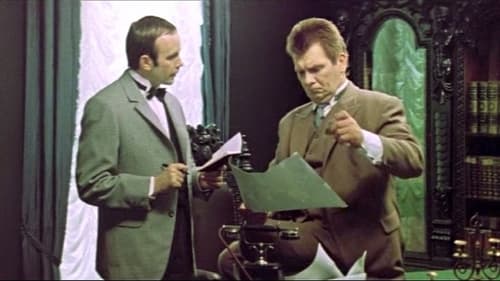
Latvia in the 1920s. The enterprising Edgars Ceplis establishes a company to produce bricks from Latvian clay for export. Many are involved in his project, hoping for the huge profits the venture promises. Ceplis soon becomes infatuated with his office typist Austra Zīle and starts neglecting the business...
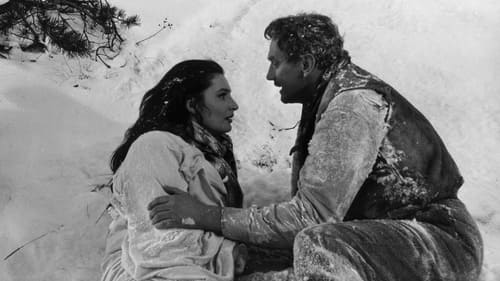
A group of men go under-ice fishing, but find themselves trapped on a piece of ice, that has broken off. As they are drifting through the sea, the tension between them rises.

Klimov
In the experimental clinic, a batch of valuable drug was stolen. Major Grigast suspects that someone from the clinic is involved in this. He entrusts this complex matter to a young investigator Mara. An investigation leads her to a distant border town in the south of the country, where the offender intended to ship the drug abroad.
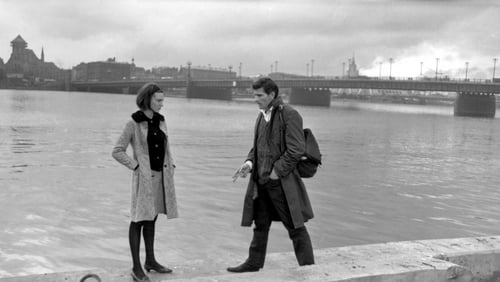
Cezars Kalnins, portrayed by "Latvian Harrison Ford” Uldis Pucitis, installs telephones by day and composes pop songs by night. The puritan Soviet censorship deems Cezars’s lyrics "unsuitable and frivolous” and "unfit for the Soviet youth”. In fact, it can be argued that this assessment matches the opinion of the Soviet cinema authorities in regard to this film as a whole, since "Four White Shirts” was immediately banned and released in cinemas only in 1986. The creative boldness and stubbornness, evident in both Cezars’s bitingly ironic verses and the film’s unconventional narrative structure and fresh, new-wave-inspired mode of expression, turned out to be equally problematic for the hero and for the film itself, as well as for its director whose representation of the actual mechanisms of Soviet censorship ended up too realistic for his own good.









